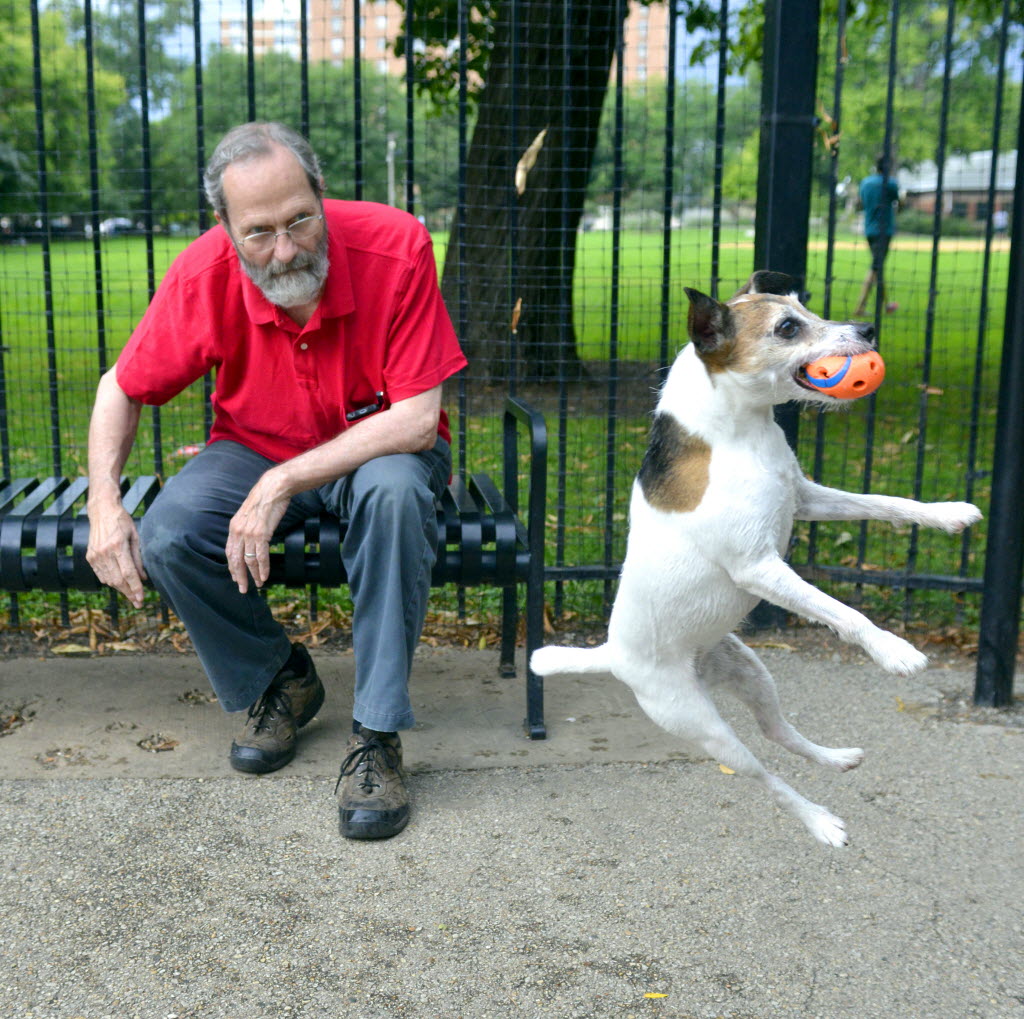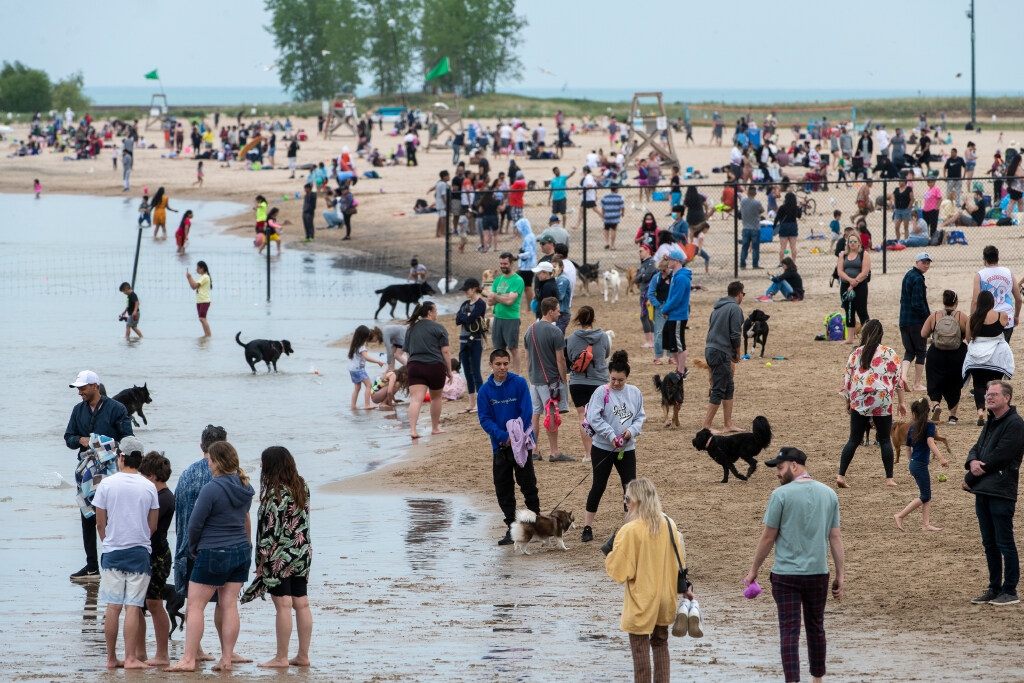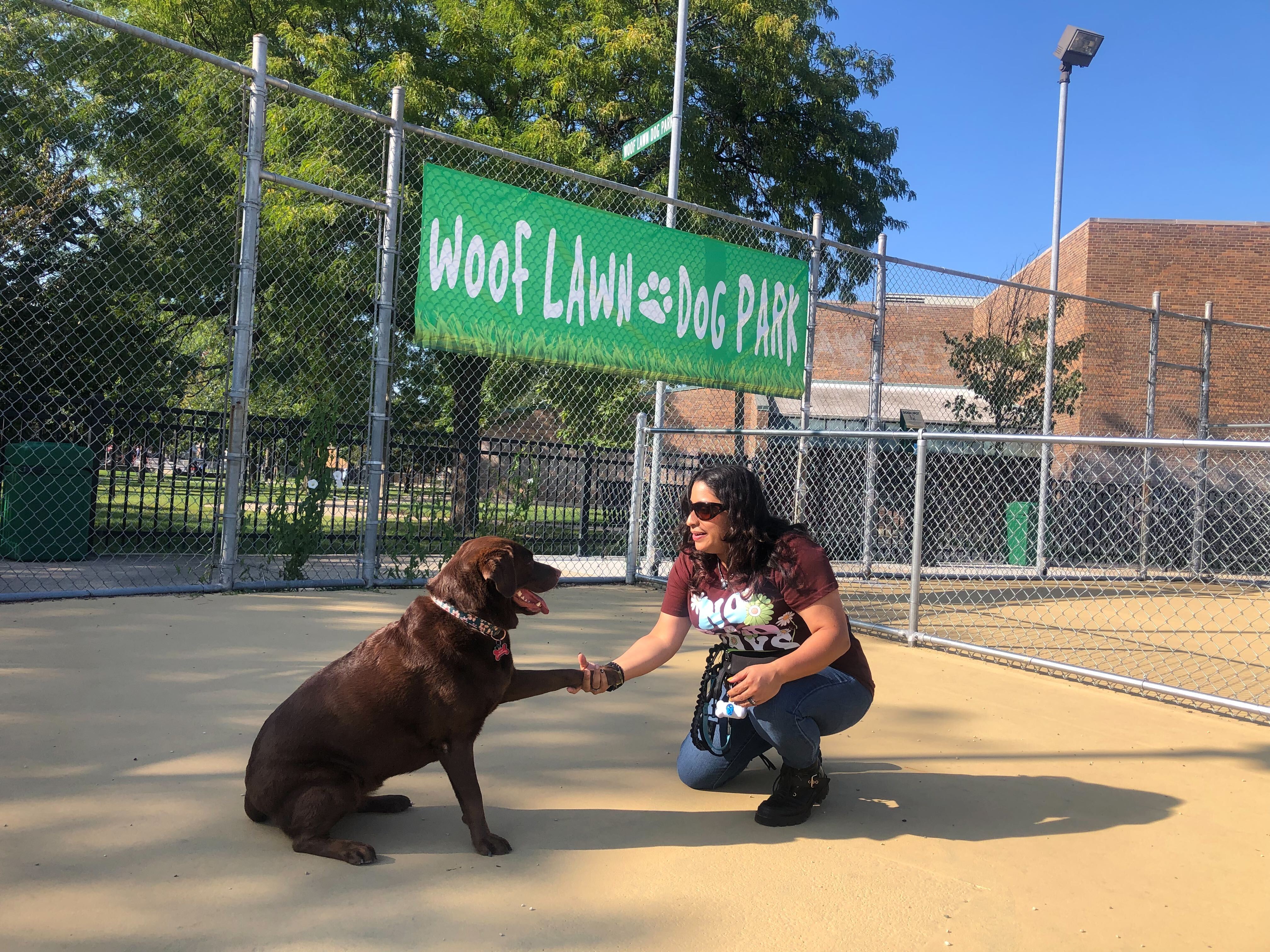On a nice day, it’s common to find a pack of dogs running around together at one of Chicago’s 34 dog parks. They can be off leash and socialize with other dogs while owners relax. But sometimes, a playful romp can turn aggressive or uncomfortable. That’s what happened to one of Kelsey Kamp’s dogs.
“We had our boxer over at Churchill dog park, and someone brought in … eight dogs and puppies that just started attacking her, and they were hanging off her face,” Kamp said. “She was not very happy about it.”

Kamp has been a self-described dog mom for about 16 years, and she’s an active owner who has advocated for a dog park in her community and strives to follow pet etiquette, like keeping her dog on a leash while walking in the neighborhood.
She knows there are rules dog owners must follow when they visit a dog park including keeping updated vaccination records. So when others don’t follow the laws and things get tense at the dog park, she wonders, who enforces those rules, if ever?
In Chicago, dog owners are required to keep their dogs on a leash unless they visit a dog friendly area, or dog park. According to the Chicago Park District, owners have to show proof that a licensed veterinarian has performed a fecal test for parasites when they fill out an application with the park district to visit a dog park. They also need to have updated vaccination records for diseases including rabies, hepatitis, and parainfluenza. The permit and tag fee is $10, and it’s usually good for one year.
The rules are straightforward, but the enforcement is anything but. It turns out a lot of the responsibility falls on residents.

Who’s checking tags?
The Chicago Park District says on its website: “The Cook County Department of Animal and Rabies Control will enforce DFA (dog friendly area) rules and regulations and issue tickets to violators. Violators, along with the Chicago Park District, will face a possible fine of $500. Dog owners must carry their permits at all times when attending DFAs. Each DFA will have a sign posted at the entrance stating all DFA rules and regulations.”
WBEZ asked the Cook County Department of Animal and Rabies Control how many tickets were issued to people who violated dog park rules in the last three years. The agency said it has no records showing such violations.
Instead, a county spokesperson said in an email statement that while the agency has the right to oversee enforcement of dog park rules, it's up to the Chicago Park District and the individual operators to actually enforce them. The county said it’s working with the park district now to update that information on the website.
Maria Stone, community engagement manager for the Chicago Park District, said visitors are expected to report dogs who don’t have tags.
“A lot of it is self-policing,” Maria Stone said. “You can call 311 also to report any dogs who do not have a license. That means [they are] not vaccinated. ...They're not safe to be in the park with other dogs.”
The park district also said the Chicago Police Department helps enforce dog park and off-leash laws by issuing citations.

Dog owners are the enforcers
Kelsey Kamp, our question asker, helped raise money for a dog park in Logan Square. She likes going to dog parks because that’s a place where she gets to know other people in her community.
“You build relationships with the other dog parents,” Kamp said. “My dog might play for an hour. And during that hour, I'm talking to the other dog parents, and we're talking about our day or our job or things that are going on.”
She said asking dog park volunteers and other visitors to enforce rules is difficult.
“I'm Midwest nice. I don't know that I would be like: ‘I'm calling the city and reporting you,’” Kamp said.
Experts said the benefits of having a dog park are crucial. Dog parks help build a tight-knit community, boost your dog’s overall health, and it’s good for the human’s mental health, too.

Dog parks are also important to help dogs socialize with others, said Veronica Magdaleno. She volunteers for the Woof Lawn Dog Park, a dog park that opened this summer in the West Lawn neighborhood. She said she gently steps in if people aren’t following the rules at the park, like picking up after their dogs. She also has a plan if things turn aggressive.
“I would take pictures, I would call 311,” Magdaleno said. “I will speak with the other people to let them know like, ‘Hey, do you want me to take action? Or can you take care of it yourself?’ And see if there's any way that we can work through it.”
Before the dog park opened in her community she had to travel to the McKinley Park dog park. Leaving the neighborhood is not easily accessible to all dog owners.
According to a WBEZ analysis of 311 data, the communities with the highest number of dog bite complaints since 2019 are largely on the West Side of the city.
The Lower West Side, which includes most of Pilsen, has the highest number of 311 dog bite complaints, more than 250. Austin was second highest with 245 complaints. Those two communities don’t have many spaces where dogs can run free and unleashed.
Eddie Guillen, a community organizer and volunteer at Woof Lawn, said dog parks can be a place to educate other dog owners about regulations and overall safety.
“We're not here to police anything. We're volunteers," Guillen said. “But what can we do to help out?”
He said he understands sometimes access to veterinarians can be challenging, but dog park volunteers are there to help bridge that gap and help people understand their responsibilities as dog owners.
Adriana Cardona-Maguigad is a WBEZ reporter. Follow her on Twitter @WBEZCuriousCity and @AdrianaCardMag. Amy Qin contributed data analysis.


